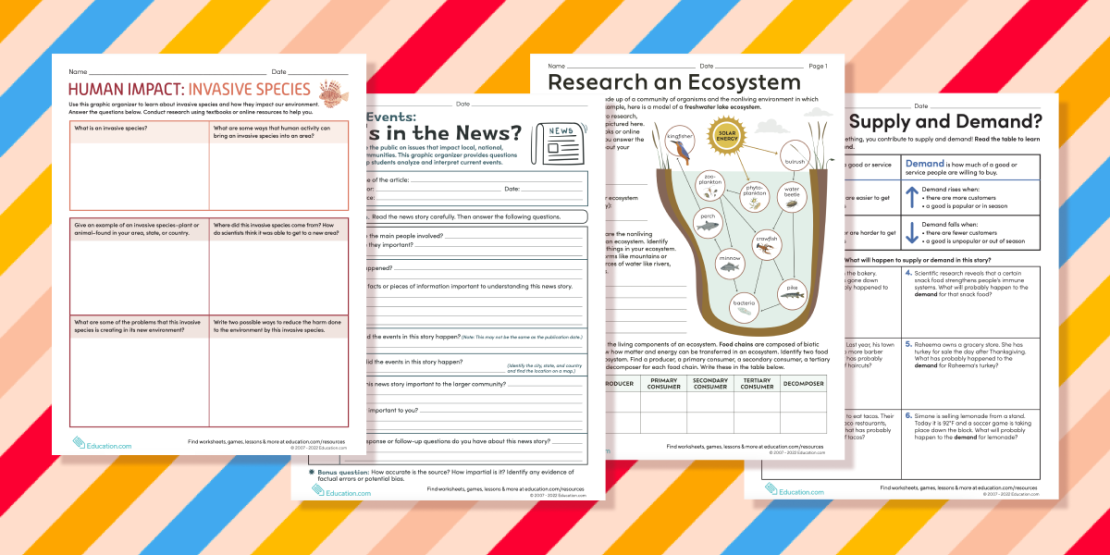“Therefore” is a connecting adverb that can be used as a connecting word in sentences and paragraphs. It expresses a causal relationship between independent clauses and therefore cannot be used at the beginning of a paragraph or as part of an independent sentence. If you want to use “therefore” in your English writing, there are a few things to remember to make sure you use it correctly. There are also some common misuses of “therefore” that you need to avoid.
Find out Common Uses of “Therefore”
Use “therefore” to express cause and effect. “Therefore” does not apply to all sentences. It has a very specific meaning and is only suitable for use in specific situations. The best way to remember when it’s appropriate to use “therefore” in a sentence is to think about whether you’re using it to express a cause-and-effect relationship. In other words, does the first sentence lead to another sentence? If not, then “therefore” probably doesn’t fit the sentence.
- For example, use “therefore” to express the causal relationship between these two sentences: “John studied hard for the math exam. He got an A+.” The modified sentence could be: “John studied hard for the math exam. Therefore, he got an A+. ”
- Another example, “People who exercise regularly enjoy better health. You should exercise.” will also improve the fluency between these two ideas. “People who exercise regularly enjoy better health. Therefore, you should exercise.”
Use “therefore” to replace conversion words and phrases of the same meaning. “Therefore” can be used in place of several other words and phrases, but it’s important to figure out the meaning first. Not all transition words and phrases can be replaced with “therefore”.
- For example, “Sally passed her driving test. As a result, she received her driver’s license.” You could replace “as a result” with “therefore,” since it has the same meaning as this phrase.
- In most cases, do not use “therefore” instead of a coordinating conjunction. Coordinating conjunctions include for, and, nor, but, or, yet and so. These words all have specific meanings, and they cannot be interchanged with each other or changed to “therefore.” Before using a word or phrase, you must understand its meaning.
Add “therefore” to improve the flow of the sentence. Adding “therefore” to your writing is a great way to improve your writing flow. A sentence or paragraph may sound incoherent without a transition, but adding the transition word “therefore” will make it much better. Try reading your article aloud to identify areas where transitions may be needed, and then determine whether “therefore” could be used in this context.
- For example, these sentences don’t sound coherent: “The weather was hot. He wore shorts and a T-shirt to school.” However, adding a transition word, such as “therefore,” improves fluency: “The weather was hot. Therefore, he wore shorts and a T-shirt to school.”
“Therefore” Is Used with Correct Punctuation and Capital Letters
Add a comma after “therefore”. Be sure to add a comma after “therefore”. This is because when “therefore” appears in a sentence, there is a natural pause after it. Without the comma, this sentence would sound abrupt.
- For example, “I love spending time in nature. Therefore I go camping every summer.” Without a comma, there would be no pause after “therefore.” However, if you add a comma, it tells the reader that there is a pause after the word “therefore.”
- The revised sentence is this: “I love spending time in nature. Therefore, (pause here) I go camping every summer.”
When separating independent clauses, precede “therefore” with a semicolon (;). If you use “therefore” in the middle of a sentence to separate two independent clauses, then you need to use a semicolon. In other words, if each part of the sentence can stand on its own, add a semicolon after the first independent sentence, followed by “therefore”, and then before continuing to the next sentence, add a semicolon after “therefore” ” followed by a comma.
- For example, “Marcus loves traveling with his family; therefore, he is always looking for cheap air tickets.”
When “Therefore” appears at the beginning of a sentence, the first letter should be capitalized. As with any sentence, if “therefore” appears at the beginning of a sentence, its first letter should be capitalized, but otherwise, no capitalization is required.
Avoid Common Mistakes
Use “therefore” to separate independent clauses. You can use “therefore” in the middle of a sentence that contains two independent clauses, but not in a sentence that contains a dependent clause. An independent clause can stand on its own as a sentence or a semicolon can be used to separate independent clauses.
- For example, “therefore” can be used to separate two clauses, such as “California is a coastal state. It has many beaches.” You could rewrite it as: “California is a coastal state; therefore, it has many beaches.”
- In some cases, you can also start a sentence with “therefore.” For example, “June’s car broke down on her way to work. Therefore, she was late for the meeting.”
- Remember, “therefore” needs to be between two independent clauses, not after them.
Use “therefore” with caution. In writing, the word “therefore” should not appear too often. Use less for better results, so be careful not to use too much. You can use other transition words to give the sentence more variety, such as “so,” “then,” “accordingly,” “consequently,” “thus,” or “since.”
- For example, you could replace “therefore” with “thus” in the previous example. You could say: “California is a coastal state; thus, it has many beaches.”
- Remember, always make sure that the alternative word or phrase you use has the same effect as “therefore” in the sentence. If you’re not sure, you can look it up on the website.
Try to use “therefore” in writing rather than in spoken language. “Therefore” is not as commonly used in spoken language as it is in written language because it sounds a bit too formal in everyday conversation. Therefore, in most situations, you should avoid using “therefore” when you speak, and instead choose more casual transitions like “so” and “then.”
- For example, if you say to someone: “It was raining when I left for work this morning, therefore I needed my raincoat.” This sounds a bit strange.
- But you don’t need to follow this rule when giving a speech or lecture.




